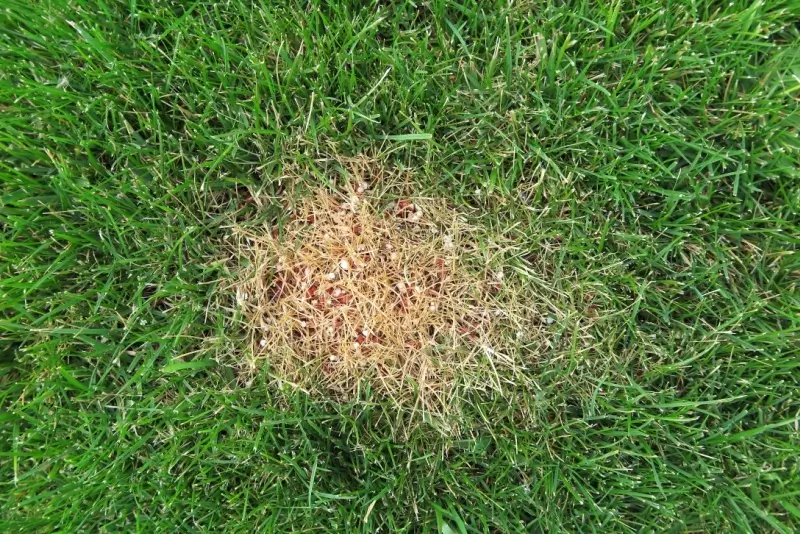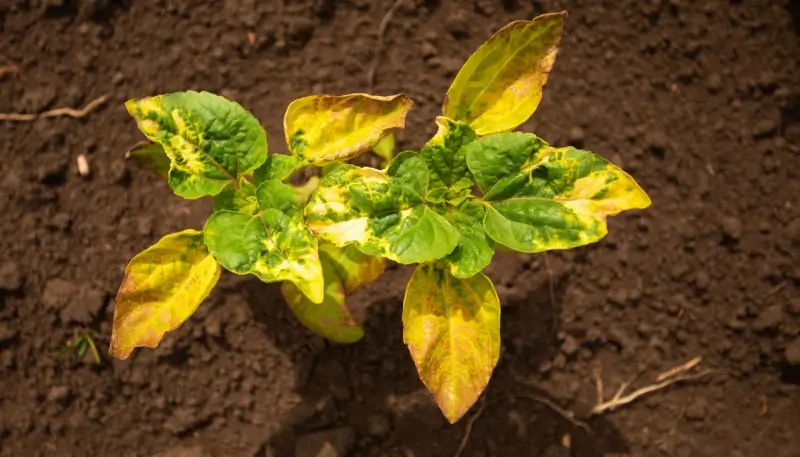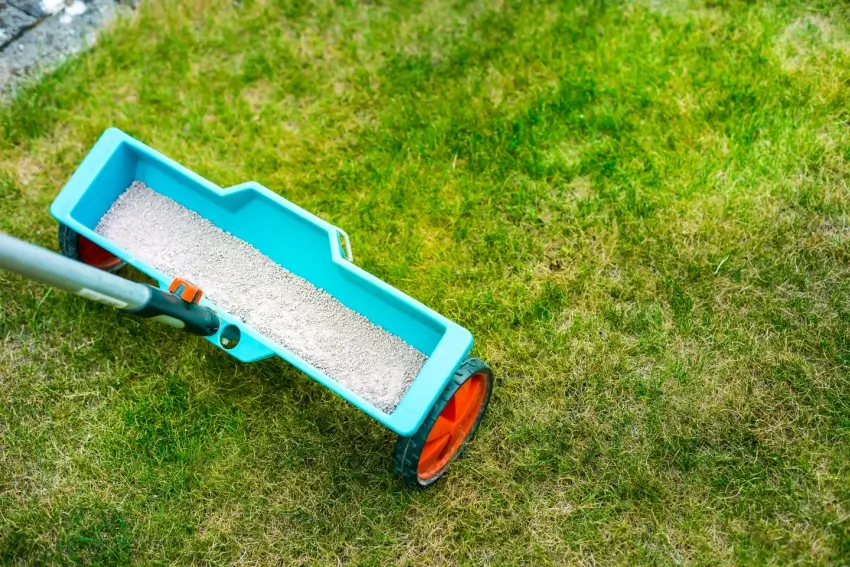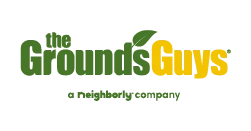Fertilizer Burn: Everything You Need To Know

Fertilizer is like a nutrient-packed superfood for your lawn, helping it grow stronger, greener, and healthier. However, you might have heard the adage, “It is possible to have too much of a good thing.” In the case of fertilizer, that’s very true. Does fertilizer burn grass? The answer is yes.
Fertilizer burn can damage the health of your grass and harm the beauty of your lawn and garden. By understanding the causes and learning prevention tips, you can avoid costly damage and keep your landscape looking its best.
Table of Contents:
What Is Fertilizer Burn?

Fertilizers contain essential elements, including nitrogen, phosphorus, potassium, and salts. When applied correctly, these salts help release nutrients into your lawn. Problems can occur when you put too much fertilizer on your lawn and garden. Excess salt can linger on your plants and soil, dehydrating them by drawing water away from their roots.
After you fertilize your land, keep an eye out for symptoms of lawn fertilizer burn, including:
- Brown or yellowing leaf edges and tips
- Wilting or drooping leaves
- Slow growth or stunted development
- Leaf scorch
- Plant death
Why Does Fertilizer Burn Grass?
The primary reason fertilizer can scorch your grass or garden plants is the excess use of fertilizers. Certain factors can increase the risk that fertilizer will burn your grass:
- Not watering thoroughly after fertilizing
- Applying fertilizer to a wet lawn
- Using a quick-release fertilizer
How to Fix Lawn Fertilizer Burn
The damage is done, and fertilizer burn has set in on your lawn. Do you just sit back and watch your grass turn yellow and wilt? Not so fast. You can take action to mitigate the damage and help your lawn recover.
- Avoid fertilizing. Don’t add any more fertilizer to your lawn and garden until your plants fully recover.
- Leach the soil. Flush the soil with plenty of water to help dilute the excess salt, a process called leaching. Repeat several times to dilute the salt as much as possible.
- Prune. Cut away and remove damaged or dead leaves from your plants. This helps them focus their energy on new growth.
- Provide shade. Too much sun on a lawn or garden suffering from fertilizer burn can add stress to your plants. If possible, provide temporary shade to help them rest.
- Be patient. Recovering after fertilizer burns grass takes time. Support your grass and plants, but also expect a gradual recovery. New growth is a sign that your lawn is on the mend.
How to Prevent Fertilizer Burn

The number one way to avoid fertilizer burn is to simply follow the directions on your fertilizer label carefully. Only apply the suggested amount and no more. Also, give your lawn time to recover before fertilizing again. In most cases, you shouldn’t need to fertilize your lawn and garden more than four times a year. (Learn the best times to fertilize your lawn.)
A few other actions can dramatically lower your risk of causing lawn fertilizer burn:
- Choose a slow-release fertilizer. This type of fertilizer releases nutrients gradually and is less likely to cause fertilizer burn.
- Pick the right fertilizer. Select an appropriate fertilizer for your plants and soil type.
- Avoid fertilizing stressed plants. If your lawn is struggling due to drought, disease, or extreme temperatures, it doesn’t need the added stress of fertilizer.
- Water before and after fertilizing. Ensure your soil is moist before applying fertilizer, and then water your lawn and garden after the application.
- Apply fertilizer evenly. When using a sprayer with liquid fertilizer or a spreader with pellets, try not to overlap your application. Concentrated spots of high fertilizer can develop fertilizer burn.
- Hire professional help. A professional fertilization team can do the job right so burns never become a problem.
Keeping Your Lawn Healthy and Green
Causing fertilizer to burn grass is a common mistake, especially among homeowners and property managers who don’t have much experience fertilizing their yards. If you want to avoid the risk of fertilizer burn altogether, consider hiring The Grounds Guys®, your local landscaping team.
We can provide ongoing residential and commercial lawn care along with seasonal services like residential and commercial lawn fertilization. We can test your soil and determine the best fertilizer for your property. We’ll also ensure even and correct distribution so your lawn gets all the benefits of fertilizer without the downsides.
Our Neighborly Done Right Promise™ means we’ll get the job done right the first time. Your lawn and garden will look great with no fertilizer burn in sight. Request a free estimate today.
This article is intended for general guidance only and may not be applicable to every situation. You are responsible for determining the proper course of action for your property and your situation. The Grounds Guys is not responsible for any damages that occur as a result of any advice or guidance derived from blog content. For the most accurate guidance, contact an independently owned and operated The Grounds Guys for more information and a professional on-site assessment.
 Click to call
Click to call


